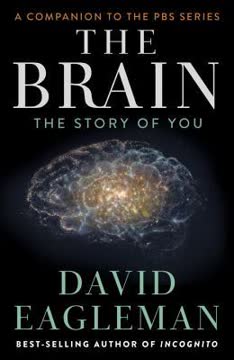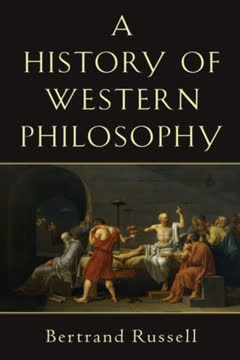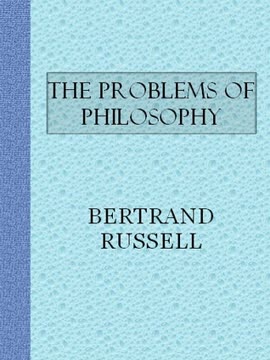نکات کلیدی
1. اصل رشد: تقویت حیات فردی و جمعی
رشد و حیات افراد و جوامع باید تا حد ممکن ترویج شود.
انرژی حیاتی برای پیشرفت فردی و اجتماعی ضروری است. اما این انرژی باید به صورت سازنده هدایت شود و از ظلم یا بهرهکشی از دیگران اجتناب شود. چالش در این است که رشدی را تقویت کنیم که به نفع همه باشد، نه رقابتی یا مخرب.
ادغام زندگیهای فردی با اهداف خلاقانه مداوم یا جهتگیریهای ناخودآگاه ضروری است. این ادغام اغلب در جامعه مدرن با موانعی مواجه میشود، جایی که تقاضاهای حرفهای میتواند رشد شخصی و اصالت را خفه کند. کلید این است که آزادی درونی را حفظ کرده و به افراد اجازه دهیم تا انگیزههای واقعی خود را دنبال کنند، حتی اگر با انتظارات متعارف همخوانی نداشته باشد.
ادغام جامعه نیازمند همراستا کردن انگیزههای خلاقانه متنوع به سوی اهداف مشترک است. این کار چالشبرانگیز اما ضروری است تا از تبدیل انرژیهای حیاتی به نیروهای مخرب جلوگیری شود، همانطور که در ناسیونالیسم افراطی یا بنیادگرایی مذهبی دیده میشود.
2. تعادل آزادی فردی با پیشرفت اجتماعی
رشد یک فرد یا یک جامعه باید تا حد ممکن به هزینه دیگری نباشد.
احترام به دیگران برای تعادل رشد فردی و جمعی اساسی است. این اصل فراتر از تعاملات شخصی است و ساختارهای سیاسی و اجتماعی را شکل میدهد، با ترویج آزادی در حالی که محدودیتهای آن به عنوان یک اصل صرفاً منفی را به رسمیت میشناسد.
هماهنگی منافع فردی و جمعی نیازمند:
- تقویت رشد شخصی بدون مانعتراشی برای دیگران
- ایجاد ساختارهای اجتماعی که از پیگیریهای فردی متنوع حمایت کنند
- توسعه حس هدف مشترک بدون قربانی کردن فردیت
همکاری بینالمللی برای پیشرفت پایدار ضروری است. جنبشهای صرفاً ملی اغلب به دلیل تهدیدات خارجی شکست میخورند، که نیاز به همکاری جهانی در مواجهه با چالشها و اصلاحات عمده را برجسته میکند.
3. تعامل غریزه، ذهن و روح در توسعه انسانی
غریزه، ذهن و روح همگی برای یک زندگی کامل ضروری هستند؛ هر کدام برتری و فساد خاص خود را دارند.
غریزه انرژی حیاتی فراهم میکند و افراد را به ریشههای زیستی و اجتماعیشان متصل میکند. این منبع احساسات و انگیزههای قوی است اما اگر کنترل نشود میتواند محدود و خودخواه باشد.
ذهن تفکر انتقادی ارائه میدهد و توانایی فراتر رفتن از انگیزههای فوری را دارد. اما ذهنی که بیش از حد غالب باشد میتواند به بدبینی و جدا شدن از نیروهای حیاتی زندگی منجر شود.
روح جهانیسازی میآورد و حس ارتباط با چیزی بزرگتر از خود را فراهم میکند. میتواند به غریزه و ذهن معنا و هدف عمیقتری ببخشد، اما وقتی فاسد شود ممکن است به دگماتیسم یا فرار از واقعیت منجر شود.
ایدهآل این است که به تعادل هماهنگی برسیم که در آن:
- غریزه انرژی و پایهگذاری فراهم کند
- ذهن جهت و تشخیص ارائه دهد
- روح معنا و تعالی فراهم کند
این تعادل اجازه میدهد تا زندگیای غنی و رضایتبخش داشته باشیم که به رفاه فردی و اجتماعی کمک مثبت میکند.
4. بازاندیشی در مورد ازدواج و جمعیت در دنیای مدرن
وضعیت فعلی قانون، نظر عمومی و سیستم اقتصادی ما به کاهش کیفیت نژاد تمایل دارد، با این که نیمی از بدترین جمعیت والدین بیش از نیمی از نسل بعدی میشوند.
پویاییهای فعلی ازدواج و جمعیت مشکلساز هستند و به روندهای جمعیتی نامطلوب منجر میشوند. افراد تحصیلکرده و توانمندتر اغلب فرزندان کمتری دارند، در حالی که کسانی که کمتر برای والدین شدن مجهز هستند تمایل به داشتن خانوادههای بزرگتر دارند.
راهحلهای پیشنهادی شامل:
- حذف موانع اقتصادی برای والدین شدن افراد توانمند
- ارائه حمایت دولتی برای تربیت فرزند، مشروط به صلاحیت والدین
- بازنگری در مفاهیم سنتی ازدواج و ساختار خانواده
این تغییرات هدف دارند:
- بهبود کیفیت کلی جمعیت
- اجازه دادن به آزادی بیشتر در روابط شخصی
- اطمینان از مراقبت و فرصتهای بهتر برای کودکان
با این حال، اجرای چنین تغییراتی نیازمند غلبه بر موانع اجتماعی، اقتصادی و سیاسی قابل توجه و همچنین هنجارهای فرهنگی عمیقاً ریشهدار است.
5. نقصهای سیستمهای آموزشی فعلی و نیاز به اصلاح
اگر هدف این بود که دانشآموزان فکر کنند، نه اینکه به پذیرش نتایج خاصی بپردازند، آموزش به طور کاملاً متفاوتی انجام میشد: سرعت آموزش کمتر و بحث بیشتر، فرصتهای بیشتری برای بیان خود دانشآموزان و تلاش بیشتر برای مرتبط کردن آموزش با مسائلی که دانشآموزان به آنها علاقه دارند وجود داشت.
سیستمهای آموزشی فعلی اغلب بر انطباق و پذیرش ایدههای تثبیتشده به جای تفکر انتقادی و رشد شخصی اولویت میدهند. این رویکرد خلاقیت را خفه میکند و دانشآموزان را برای پیچیدگیهای زندگی مدرن آماده نمیکند.
یک سیستم آموزشی اصلاحشده باید:
- تفکر مستقل و پرسشگری را تشویق کند
- خلاقیت و علایق فردی را تقویت کند
- مهارتهای تحلیل انتقادی و حل مسئله را توسعه دهد
- هوش عاطفی و اجتماعی را در کنار دانش آکادمیک ترویج کند
هدف این است که افرادی ایجاد کنیم که نه تنها آگاه باشند، بلکه سازگار، خلاق و قادر به مشارکت معنادار در جامعه باشند. این نیازمند تغییر از یادگیری طوطیوار به رویکردهای آموزشی تعاملی، جذاب و شخصیسازی شده است.
6. نقش دین در جامعه: فراتر از دگما و نهادها
اگر دیدگاه دینی از زندگی و جهان بخواهد بار دیگر افکار و احساسات مردان و زنان آزاداندیش را تسخیر کند، بسیاری از چیزهایی که به دین عادت کردهایم باید کنار گذاشته شود.
نهادهای دینی سنتی اغلب در مواجهه با پیشرفت علمی و تغییر هنجارهای اجتماعی برای باقی ماندن مرتبط تلاش میکنند. با این حال، نیازهای معنوی که دین به آنها میپردازد برای بسیاری از افراد و جوامع همچنان مهم است.
رویکردی نوین به معنویت میتواند:
- بر اصول اخلاقی و رشد شخصی به جای دگماهای سختگیرانه تمرکز کند
- درک علمی را در حالی که به سوالات وجودی میپردازد بپذیرد
- جامعه و هدف مشترک را بدون انحصارطلبی یا عدم تحمل ترویج کند
این معنویت بازنگریشده هدف دارد تا مزایای تجربه دینی – مانند معنا، جامعه و راهنمایی اخلاقی – را بدون معایب نهادهای دینی سنتی، مانند دگماتیسم و تقسیم اجتماعی، فراهم کند.
7. تصور آیندهای بهتر: قدرت فکر و عمل
قدرت فکر، در درازمدت، از هر قدرت انسانی دیگری بیشتر است. کسانی که توانایی فکر کردن و تخیل برای فکر کردن مطابق با نیازهای انسانها را دارند، احتمالاً به خوبی که هدف دارند زودتر یا دیرتر دست خواهند یافت، هرچند احتمالاً نه در حالی که هنوز زنده هستند.
ایدههای تحولآفرین، هرچند در ابتدا ممکن است غیرعملی یا ایدهآلیستی به نظر برسند، قدرت تغییر جوامع را در طول زمان دارند. مثالهای تاریخی مانند تحمل دینی، دموکراسی و حقوق زنان نشان میدهند که چگونه ایدهها میتوانند از مفاهیم حاشیهای به اصول بنیادی اجتماعی تبدیل شوند.
برای ایجاد تغییر مثبت:
- دیدگاههای روشنی از بهبودهای اجتماعی مطلوب توسعه دهید
- شجاعت برای فکر کردن مستقل و به چالش کشیدن هنجارها را پرورش دهید
- ایدهآلیسم را با گامهای عملی به سوی اجرا متعادل کنید
- برای مواجهه با چالشهای جهانی به صورت بینالمللی همکاری کنید
فرآیند تغییر اغلب کند است و ممکن است در طول یک عمر کامل نشود. با این حال، با بیان و پیگیری دیدگاههای یک دنیای بهتر، افراد میتوانند نیروهایی را به حرکت درآورند که جامعه را مدتها پس از زمان خودشان شکل دهند.
آخرین بهروزرسانی::
FAQ
What's "Why Men Fight" about?
- Exploration of Conflict: "Why Men Fight" by Bertrand Russell examines the underlying causes of conflict, both personal and political, and proposes ways to promote creativity and diminish possessive impulses.
- Political Philosophy: The book is a significant contribution to political philosophy, challenging the outmoded liberalism of the 19th century and suggesting a new theory based on impulse rather than conscious purpose.
- Social Reconstruction: Russell discusses the need for fundamental changes in society's economic and social structures to prevent decay and promote growth.
Why should I read "Why Men Fight"?
- Insightful Analysis: The book provides a profound analysis of the psychological and social roots of aggression and conflict, offering a unique perspective on human behavior.
- Relevance to Modern Issues: Although written during World War I, the themes of war, peace, and social justice remain relevant to contemporary global issues.
- Philosophical Depth: Russell's work is a blend of philosophy, sociology, and political theory, making it a rich resource for understanding the complexities of human society.
What are the key takeaways of "Why Men Fight"?
- Creative vs. Possessive Impulses: Russell emphasizes the importance of fostering creative impulses over possessive ones to build a healthier society.
- Role of the State: The book critiques the excessive power of the state and its role in promoting war and suppressing individual freedom.
- Education and Growth: Russell advocates for an education system that encourages independent thought and personal growth rather than conformity and obedience.
What are the best quotes from "Why Men Fight" and what do they mean?
- "The supreme principle...": This quote highlights Russell's belief that promoting creativity and reducing possessive desires should be the guiding principle in both politics and private life.
- "Only passion can control passion...": Russell argues that reason alone is insufficient to prevent war; instead, a positive life of impulses and passions opposed to war is necessary.
- "The civilized world has need of fundamental change...": This quote underscores the urgent need for societal transformation to prevent decay and promote a vibrant, creative society.
How does Bertrand Russell define the principle of growth in "Why Men Fight"?
- Instinctive Urgency: Russell describes growth as an instinctive urgency leading individuals in a certain direction, akin to how trees seek light.
- Unimpeded Development: He argues that social institutions should facilitate free and vigorous growth rather than impose a fixed pattern on individuals.
- Central Principle: Growth is seen as a central principle that determines the type of excellence each person is capable of achieving.
What is Bertrand Russell's view on the state in "Why Men Fight"?
- Critique of State Power: Russell criticizes the state's excessive power, which he believes promotes war and suppresses individual freedom.
- Role of the State: He argues that the state's role should be limited to maintaining order and preventing injustice, rather than controlling every aspect of life.
- Promotion of Creativity: The state should encourage creativity and personal growth, rather than stifling them through rigid control and authority.
How does "Why Men Fight" address the issue of war?
- War as an Institution: Russell views war as a permanent institution in free communities, driven by impulses rather than rational calculations.
- Impulses Behind War: He identifies the impulses of aggression and resistance to aggression as key drivers of war, which are often masked by rational justifications.
- Path to Peace: Russell suggests that peace can only be achieved by redirecting the impulses that lead to war towards constructive and creative ends.
What does Bertrand Russell say about property in "Why Men Fight"?
- Critique of Private Property: Russell critiques the institution of private property, arguing that it is based on historical injustices and perpetuates inequality.
- Economic Justice: He advocates for a more just distribution of resources, where the state plays a role in ensuring fairness and preventing monopolies.
- Creative vs. Possessive: Russell emphasizes the need to prioritize creative impulses over possessive ones to foster a more equitable and vibrant society.
How does "Why Men Fight" approach the topic of education?
- Education for Growth: Russell argues for an education system that promotes independent thought and personal growth rather than conformity and obedience.
- Role of Reverence: He emphasizes the importance of reverence in education, where teachers respect the individuality and potential of each child.
- Critique of Current Systems: The book criticizes existing educational systems for their focus on producing belief rather than fostering critical thinking and creativity.
What are Bertrand Russell's views on marriage and the population question in "Why Men Fight"?
- Marriage as a Social Institution: Russell examines marriage as a political institution, critiquing its basis in outdated religious and moral codes.
- Population Concerns: He addresses the selective birth-rate issue, where the best elements of the population fail to reproduce, leading to societal decline.
- Proposed Reforms: Russell suggests reforms to remove economic burdens from parents and promote freedom in personal relationships, while ensuring the well-being of children.
How does "Why Men Fight" discuss religion and the churches?
- Decay of Dogmatic Religion: Russell explores the decline of dogmatic religion due to new knowledge and the opposition of churches to political progress.
- Religion and Morality: He calls for a new morality of initiative and hope, rather than submission and fear, to inspire a positive vision of human life.
- Role of the Spirit: The book emphasizes the importance of the life of the spirit, which transcends instinct and mind, fostering a sense of unity and purpose.
What practical steps does Bertrand Russell suggest in "Why Men Fight"?
- Promoting Creativity: Russell advocates for promoting creative impulses in both politics and private life, reducing the focus on possession and competition.
- International Cooperation: He emphasizes the need for international cooperation to overcome nationalistic aggression and promote global peace.
- Long-term Change: Russell encourages patience and perseverance, recognizing that meaningful change requires a shift in societal values and long-term efforts.
نقد و بررسی
کتاب چرا مردان میجنگند نقدهای متفاوتی دریافت میکند، با تحسین برای تحلیلهای عمیق راسل از ساختارهای اجتماعی و انگیزههای انسانی. خوانندگان ایدههای پیشرو او در زمینهی آموزش، حقوق زنان و صلحطلبی را میستایند. برخی کتاب را چالشبرانگیز اما اندیشهبرانگیز میدانند، در حالی که دیگران دیدگاههای قدیمی دربارهی نژاد و بهنژادی را نقد میکنند. بسیاری سبک نوشتاری شفاف و استدلالهای منطقی راسل را تحسین میکنند. بهطور کلی، منتقدان ارزش کتاب را در زمینهی تاریخی آن و ارتباطش با مسائل معاصر میدانند، با وجود برخی مفاهیم قدیمی.




















